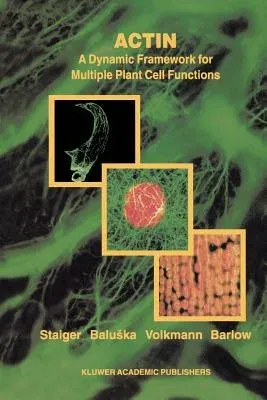Actin is an extremely abundant protein that comprises a dynamic
polymeric network present in all eukaryotic cells, known as the actin
cytoskeleton. The structure and function of the actin cytoskeleton,
which is modulated by a plethora of actin-binding proteins, performs a
diverse range of cellular roles. Well-documented functions for actin
include: providing the molecular tracks for cytoplasmic streaming and
organelle movements; formation of tethers that guide the cell plate to
the division site during cytokinesis; creation of honeycomb-like arrays
that enmesh and immobilize plastids in unique subcellular patterns;
supporting the vesicle traffic and cytoplasmic organization essential
for the directional secretory mechanism that underpins tip growth of
certain cells; and coordinating the elaborate cytoplasmic responses to
extra- and intracellular signals. The previous two decades have
witnessed an immense accumulation of data relating to the cellular,
biochemical, and molecular aspects of all these fundamental cellular
processes. This prompted the editors to put together a diverse
collection of topics, contributed by established international experts,
related to the plant actin cytoskeleton. Because the actin cytoskeleton
impinges on a multitude of processes critical for plant growth and
development, as well as for responses to the environment, the book will
be invaluable to any researcher, from the advanced undergraduate to the
senior investigator, who is interested in these areas of plant cell
biology.

